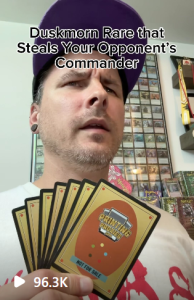Dive into the heart of Magic: The Gathering (MTG) with a comprehensive guide by the leading MTG proxy printer, exploring popular formats and the strategic use of proxies.
Magic: The Gathering (MTG) is a collectible card game that has captivated players worldwide with its strategic depth, intricate artwork, and thriving community. Among its diverse aspects, the various formats in which the game can be played stand out, catering to a wide range of playstyles and preferences. This article provides an overview of the most popular MTG formats, highlighting how players often utilize MTG proxies to explore these formats without significant investment.
Introduction to MTG Proxies
Before diving into the formats, it’s crucial to understand what MTG proxies are. An MTG proxy is a stand-in for an official Magic: The Gathering card that a player might not own or wish to use in casual play. These can range from simple slips of paper with the card’s name written on them to more sophisticated, print MTG proxy cards that closely mimic the appearance of the original cards. Proxies are especially popular in formats where the cost of building competitive decks can be prohibitively high, allowing players to test and enjoy the game without breaking the bank.
Standard Format with MTG Proxies
The Standard format is one of the most accessible and widely played MTG formats. It features a rotating pool of the most recent sets, ensuring the game environment is always evolving. Players looking to experiment with different decks or strategies in Standard may use MTG proxies to simulate the experience of playing with the latest cards before making a purchase.
Modern Format Through MTG Proxies
Modern is a non-rotating format that allows cards from all core sets and expansions printed from the 8th Edition onwards. This format is beloved for its wide variety of viable decks and strategies. Given the extensive card pool, some Modern staples can be quite expensive. MTG proxies enable players to test various decks and find the one that suits their playstyle the best before investing in the actual cards.
Commander Embracing MTG Proxies
Commander, also known as EDH (Elder Dragon Highlander), is a multiplayer format that emphasizes social interactions and creative deck building. Each player chooses a legendary creature as their commander and builds a 100-card deck around that card’s colors and thematic elements. Due to the singleton rule (only one copy of any card, except basic lands) and the vast card pool, creating a competitive Commander deck can be a costly endeavor. This is where MTG proxies come into play, allowing players to explore various commanders and strategies without significant financial commitment.
Legacy and Vintage: The Realm of MTG Proxies
Legacy and Vintage are formats that permit almost every card ever printed in MTG, with a few restrictions and banned lists. These formats are known for their high-powered gameplay and historically significant cards, many of which are rare and expensive. MTG proxies are widely accepted in casual playgroups for these formats, enabling players to experience the full breadth of Magic’s history and power without the need for a massive investment.
Comparison between Popular MTG Formats
| Format | Rotation | Card Pool | Play Style | Accessibility | Preferred For |
| Standard | Annual | Recent sets | Dynamic, evolving | High | New players, frequent changes |
| Modern | None | 8th Edition onwards | Wide variety, stable | Moderate | Stable investment, Variety |
| Commander | None | Nearly all cards | Social, creative | Varies | Casual, multiplayer |
| Legacy | None | Nearly all cards | High-powered, complex | Low | Historic depth, challenge |
FAQs:
Does Wizards of the Coast allow MTG proxies?
Wizards of the Coast permits proxies (or ‘playtest cards’) for personal, non-commercial use outside sanctioned events, distinguishing them from counterfeit cards
Can MTG proxies be used in tournaments?
Proxies are not allowed in official tournaments unless a judge issues a temporary proxy for a damaged card, valid only for that tournament.
Do you offer foil cards?
Yes, foil proxies are available, with a surcharge per card and a minimum order quantity
What’s the difference between double-sided proxies and regular ones?
Double-sided proxies are printed on both sides, with custom back uploads available, often at no extra cost.
Conclusion
As we’ve navigated through the various MTG formats and the role of proxies, it’s clear that the use of high-quality MTG proxy printers can significantly enrich the game, providing players with the freedom to experiment and enjoy without constraints. Embrace the art of proxy use to unlock new levels of creativity and competition in your MTG journey.
For more Details Visit Printingproxies




